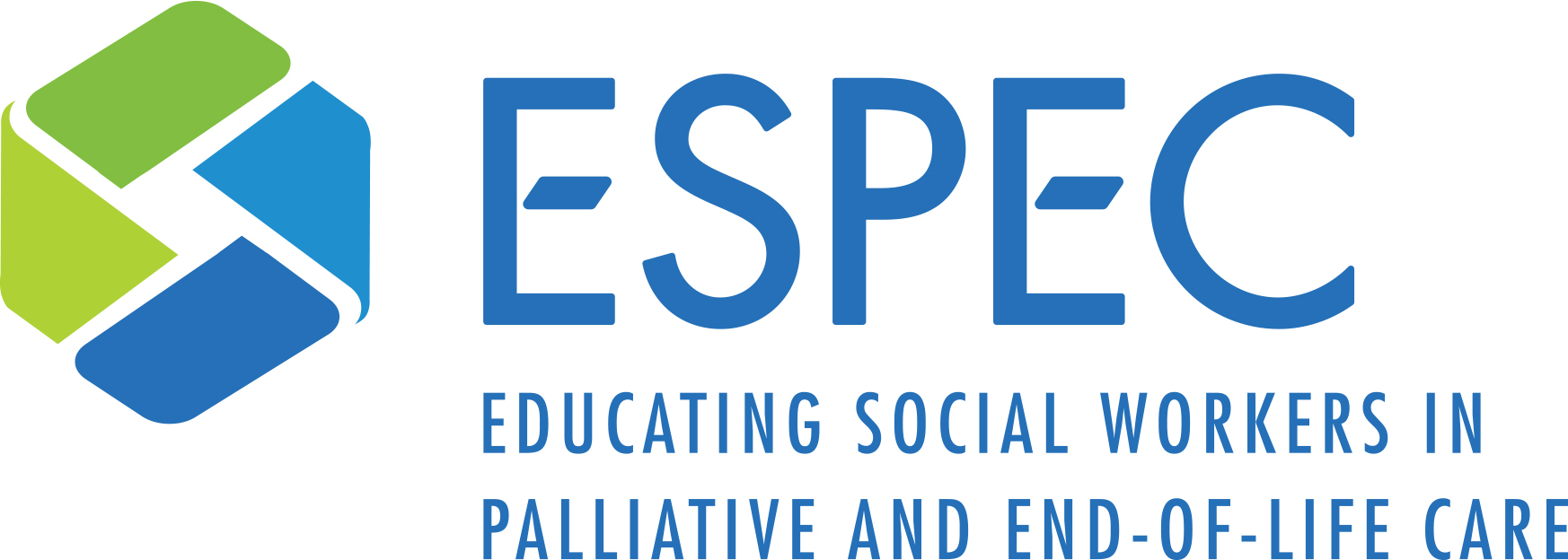Educating Social Workers in Palliative and End-of-Life Care (ESPEC) is an innovative training program designed for health social workers by social workers to promote the integration of primary palliative care skills into clinical practice.
Program components include interactive online coursework, live, synchronous instructor-led training, monthly mentorship, and leadership training. The state-of-the-art curriculum presents videos of patient and family encounters, highlighting best social work practices using the framework of the eight domains of palliative care. Interactive training techniques are designed to engage the learner and create a new community of practice.
Part I: Interactive Online Training
Module 0 – ESPEC Course Orientation
Provides an overview of the ESPEC program, structure, framework, course navigation, and functionality
Introductory Module
Reviews the principles and domains of palliative care identified by the National Consensus Project for Quality Palliative Care, and explores the benefits of integrating primary palliative social work competencies into health social work
Module 1: Structure and Processes of Care
Identifies the importance of the social worker’s biopsychosocial-spiritual assessment to the provision of person-centered, family-focused, culturally congruent care
Module 2: Physical Aspects of Care
Highlights best social work practices to address physical concerns in serious illness, including pain and symptom management and the multidimensional aspects of suffering
Module 3: Psychological and Psychiatric Aspects of Care
Identifies the psychological impact of serious illness on patients and families and the social worker’s role in promoting adjustment and improved coping
Module 4: Social Aspects of Care
Identifies the social worker’s role in addressing the social determinants of health and the impact of the social environment, family structure, and social network on patient and family well-being
Module 5: Spiritual, Religious, and Existential Aspects of Care
Identifies social work strategies to recognize spiritual and existential distress and promote patients’ and family caregivers’ religious and spiritual coping
Module 6: Cultural Aspects of Care
Identifies social work practices for promoting culturally congruent, person-centered, family-focused care with specific attention to issues of social justice, diversity, and health equity
Module 7: Care of the Patient Nearing the End of Life
Recognizes the role of the health social worker in promoting shared decision-making and advance care planning, as well as understanding common concerns related to anticipatory grief and bereavement
Module 8: Ethical and Legal Aspects of Care
Explores common ethical, legal, and regulatory issues found in serious illness care and identifies the health social worker’s contribution to promoting an ethical framework supportive of patient preferences

 Adding Registration, Please wait...
Adding Registration, Please wait...









